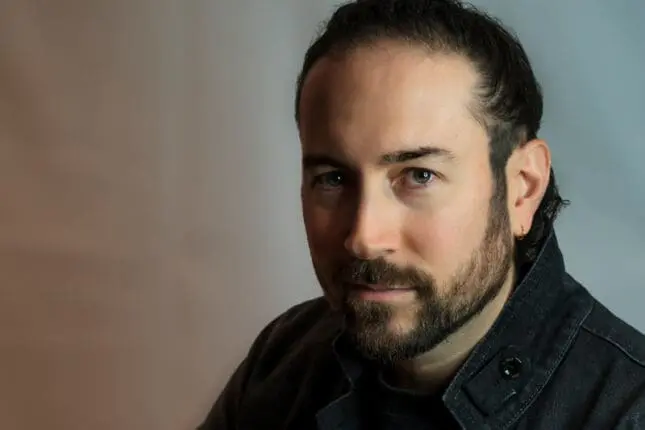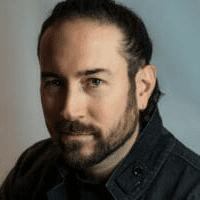“Don’t put coffee up your butt” is not the kind of fatherly wisdom I thought I’d need to share with my children, but as digital natives who navigate Instagram and TikTok better than I navigate my own backyard, my kids will inevitably encounter messages about the benefits of putting coffee up their butt—along with countless other outlandish recommendations—from wellness practitioners. I take it upon myself, their parent (who happens to be a psychologist), to help them discern sound wellness advice from a scam. Shouldn’t we also do this for our clients?
According to Jonathan N. Stea, a clinical psychologist and adjunct assistant professor at the University of Calgary, the answer is: absolutely. As the author of Mind the Science: Saving Your Mental Health from the Wellness Industry, Stea advocates for therapists separating the wheat from the chaff in mental health treatments to provide the sound and effective treatments our clients need.
Beyond coffee enemas, Stea takes issue with what he says are the oversold scientific claims around acupuncture, psychedelics, Reiki, chiropractic medicine, mindfulness meditation, 12-step programs, energy therapies and even some popular therapeutic modalities. If the thought that he might be trying to slay one of your sacred cows upsets you, you’re not alone: he receives a daily barrage of hate mail messages, many directed at his infamous man-bun. On one social media post, someone commented disparagingly, “Says the guy with a man bun.” Stea quipped back, “It knotoriously annoys pseudoscience apologists.”
But he isn’t challenging popular therapeutic techniques and methods to be provocative. His mission is to help people parse pseudoscience from actual science in a culture where it can be hard to tell the difference. I recently talked with him about pseudoscience, psychotherapy, and professional ethics over a cup of coffee. That I drank. With my mouth.
Ryan Howes: You’re well known for challenging all forms of pseudoscience. So let’s say, hypothetically, I’d like to get rich and powerful by creating a pseudoscientific product. Give me a starter kit here.
Jonathan Stea: You’ll need to start with a good name and describe your treatment or product or service with science-y sounding words. Quantum is a great one because it’s so obscure. Then you need to build yourself a website that features your science-y sounding words along with anecdotal evidence and testimonials about your product or service.
The claims you tout will be completely divorced from the broader scientific literature. So, maybe you have a homeopathic product where the active ingredient is diluted out of existence, but you claim water can remember the active ingredient that was once in there—quantum physics, right? Or maybe you propose an energy healing service where you say human energy fields can be manipulated and balanced, without touch being involved. You say a practitioner can just wave their hands around another person’s body and somehow remove the energy blockages that are supposedly the “root cause” of their depression or anxiety or PTSD. If critics come at you, you reverse the burden of proof. “Why don’t you tell me why this treatment is not effective, rather than me providing evidence of its effectiveness?”
Other pseudoscience warning signs are tropes that serve to sow distrust in mainstream medicine—I outline nine in my book. One is, “Mainstream mental healthcare, like medication and psychotherapy, only masks the symptoms of your anxiety and depression: we address the root cause.” When you dig deeper into claims like this, the root cause is usually itself pseudoscientific, like a diet deficiency that you didn’t know you had. Alternative medicine tropes also like to say that their treatments are natural, safer, and have been used for thousands of years.
RH: As therapists, our answer to clients who want a quick fix for their problems is often, “We can help, but the process could be long and messy.” The kinds of products and methods you’re talking about claim, “Here’s the root cause. Here’s all you need to do to address it. It’s simple.” Given a choice between complicated or simple, most of us would choose the simple option.
Stea: That’s marketing. That’s the kind of stuff that goes viral: oversimplified, emotion-laden language as opposed to the nuanced, probabilistic, complex language of psychologists in psychotherapy or scientists in academia. Pseudoscience oversimplifies.
RH: Why are people so angry about what you have to say?
Stea: I’ve thought about this a lot. And I think tribalism plays a huge role. More and more, our political affiliations have gotten wrapped up in our scientific beliefs, and people can get very heated over that. We incorporate beliefs, including pseudoscientific ones, so deeply into our identity that any challenge to them threatens our worldview, which can bring up anxiety and cause us to lash out.
Plus, our darkest impulses come out online, where we can unleash negative reactions more easily than when we’re face-to-face with a living, breathing human being. I get about 100 hateful messages a day online, so I’ve had to get practiced at managing them, but it took a while. Now, I try to change the vitriol into humor and make an educational point out of it, if I can.
RH: It seems everyone uses the term “evidence based” for their therapeutic approach these days. Has that been oversold?
Stea: I applaud the root and spirit of that term. People do need to pay attention to science with respect to mental health, and to use evidence-based treatments. The problem is, as you’re suggesting, terms can be abused. Bad science is often published in pseudoscientific journals that focus on pseudoscientific topics or use dubious research methods.
In my book, I warn readers about the perils of randomized controlled trials because you can pretty easily have something like thought field therapy or energy healing pass a randomized trial and then lay claim to it being an evidence-based treatment. But was it the energy healing that helped, or was it the rapport building between practitioners and research subjects? That’s why in the skeptic community, there’s been a call toward science-based medicine as opposed to evidence-based medicine. Science-based medicine urges us to pay attention to scientific plausibility when conducting randomized control trials.
RH: What can we do as a profession to communicate scientific validity?
Stea: Educate ourselves. Years ago, professor and evidence-based treatment advocate Scott Lilienfeld and his colleagues estimated that there are at least 600 brands of psychotherapy out there. Most of us would be hard-pressed to name 30, or even 20 of them. The majority are untested. Maybe they work, but we just don’t know. I suspect a lot of them are based on repackaged evidence-based principles from our main cache of evidence-based treatments, like cognitive behavioral therapy and psychodynamic therapy.
RH: Psychodynamic therapy has a bad reputation among many undergraduate professors out there, but you include it among the valid treatment approaches.
Stea: Absolutely. Psychologist and researcher Jonathan Shedler has done a really great job of communicating the science behind psychodynamic therapy. When I was in grad school, it was the CBTers versus the psychodynamic folks, but when I got out into the real world, I realized that even though the language they used was different, the evidence-based principles they used were quite similar.
RH: How are mental health organizations part of the pseudoscience problem?
Stea: Personally, I’d like to see our licensing and regulatory bodies reject the use of unequivocally pseudoscientific treatments in therapy. Energy healing, past-life regression therapy—that stuff is unequivocally pseudoscientific. There’s a huge gray area though, which I acknowledge. So the responsibility to practice ethically and competently ultimately rests on individual practitioners.
If I was a psychologist who used Reiki or energy healing with clients, I’d be ethically obligated to tell them during the informed consent process, “According to the evidence, this treatment doesn’t work beyond the placebo effect, and there are other evidence-based treatments that are more likely to work.”
If I don’t want to say that to clients, then my due diligence is to stop offering that treatment and focus on the common factors of therapy like cultivating the therapeutic alliance and engaging in basic counseling skills or proven therapies like psychodynamic therapy, dialectical behavioral therapy, and acceptance and commitment therapy.
RH: If a regular clinician wants to make sure they’re minding the science, what should they do first?
Stea: It’s our ethical duty to read the scientific literature and make sure we’re practicing ethically and competently.
Jonathan Stea
Jonathan N. Stea, Ph.D., R. Psych., is a full-time practicing clinical psychologist and adjunct assistant professor in the Department of Psychology at the University of Calgary. Clinically, he specializes in the assessment and treatment of concurrent addiction and mental disorders. He’s a two-time winner of the University of Calgary’s Award for Excellence in Clinical Supervision and co-editor of the book Investigating Clinical Psychology: Pseudoscience, Fringe Science, and Controversies. His new book, Mind the Science: Saving Your Mental Health from the Wellness Industry, aims to educate and embolden those who wish to make informed decisions about their mental health.
Ryan Howes
Ryan Howes, Ph.D., ABPP is a Pasadena, California-based psychologist, musician, and author of the “Mental Health Journal for Men.” Learn more at ryanhowes.net.














